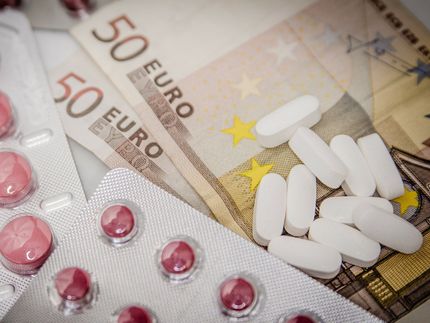LDC opens branch in Munich
Focus on discovery of therapeutic antibodies
Advertisement
The Lead Discovery Center GmbH (LDC) has established a branch - LDC Biologics - in the Munich Biocluster. While the team in Dortmund focuses on chemical compounds (small molecules), in Munich the emphasis will be on the development of therapeutic antibodies. LDC Biologics will produce, optimise and humanise innovative antibodies according to industrial standards in close cooperation with partners from academia and therefore connecting academic research and industrial drug discovery. The Munich team, under the management of Dr. Johannes Bange, can resort to more than 15 years of experience in the pre-clinical and clinical development of therapeutic antibodies.
With this branch office, LDC is also expanding its long-standing expertise in the pharmaceutical drug discovery with partners from academia and industry to include the development of therapeutic antibodies. This allows for the use of technologies and methods complying with the highest quality standards and industrial best practices at a very early project stage and creates a sustainable transfer solution for excellent innovative ideas from academia and the industry.
“With the expansion of LDC activities to include biological agents we are responding to the wish of our industry partners to offer a solution not only for chemical compounds, but also for biological ones. In doing this, we will continue with the established and proven LDC translation model of close cooperation with our partners from academia in respect of biological agents. The “LDC Biologics” department is ideally located in the Munich Biotechcluster, the centre of research of biological agents in Germany“, states Dr. Bert Klebl, Managing Director and Chief Scientific Officer of the LDC.
In addition, the entire drug discovery value chain at the Munich site is supported by LDC´s well-proven global pharmaceutical and investor network through licencing and/or a spin-off of new companies. The new site of the antibody group is in direct proximity to the Martinsried Biotech Campus, which connects academic basic research and applied development.
“We are very pleased that LDC has located its biologics division in the Greater Munich Area. Our location provides the best scientists and an excellent LifeScience ecosystem, which has been established for years, for the successful translation from academia to medical use”, adds Prof. Horst Domdey, Managing Director of the BioM Biotech Cluster Development GmbH.
There is also a close interconnection with the newly founded ISAR Bioscience GmbH which will also cooperate closely with LDC in the future. LDC Biologics has already entered into active partnerships in the field of antibody development with local research facilities, such as Helmholtz Zentrum München – German Research Center for Environmental Health. One project of the LDC Biologics portfolio is funded by the Bavarian Ministry of Economy.
Other news from the department science
Most read news
More news from our other portals
See the theme worlds for related content
Topic world Antibodies
Antibodies are specialized molecules of our immune system that can specifically recognize and neutralize pathogens or foreign substances. Antibody research in biotech and pharma has recognized this natural defense potential and is working intensively to make it therapeutically useful. From monoclonal antibodies used against cancer or autoimmune diseases to antibody-drug conjugates that specifically transport drugs to disease cells - the possibilities are enormous

Topic world Antibodies
Antibodies are specialized molecules of our immune system that can specifically recognize and neutralize pathogens or foreign substances. Antibody research in biotech and pharma has recognized this natural defense potential and is working intensively to make it therapeutically useful. From monoclonal antibodies used against cancer or autoimmune diseases to antibody-drug conjugates that specifically transport drugs to disease cells - the possibilities are enormous


















































